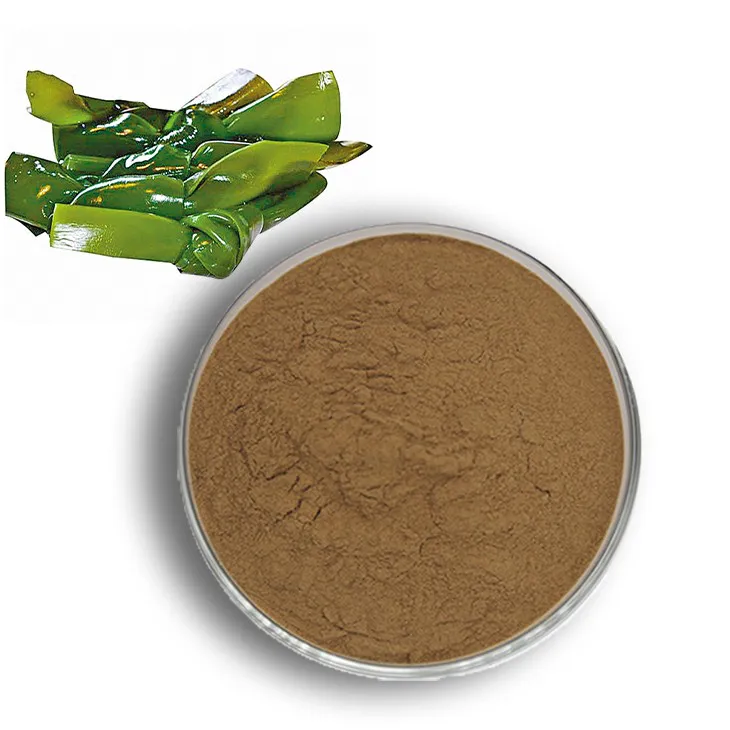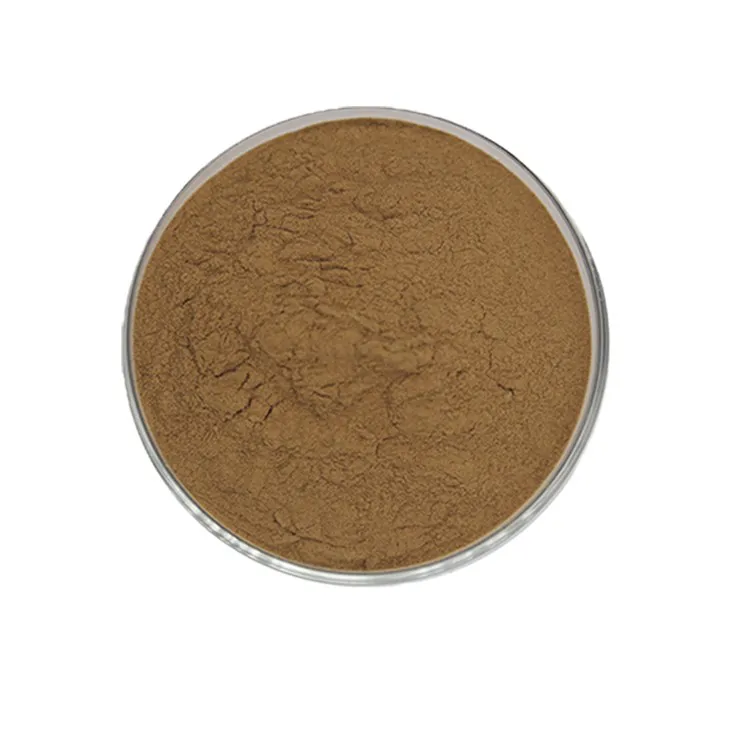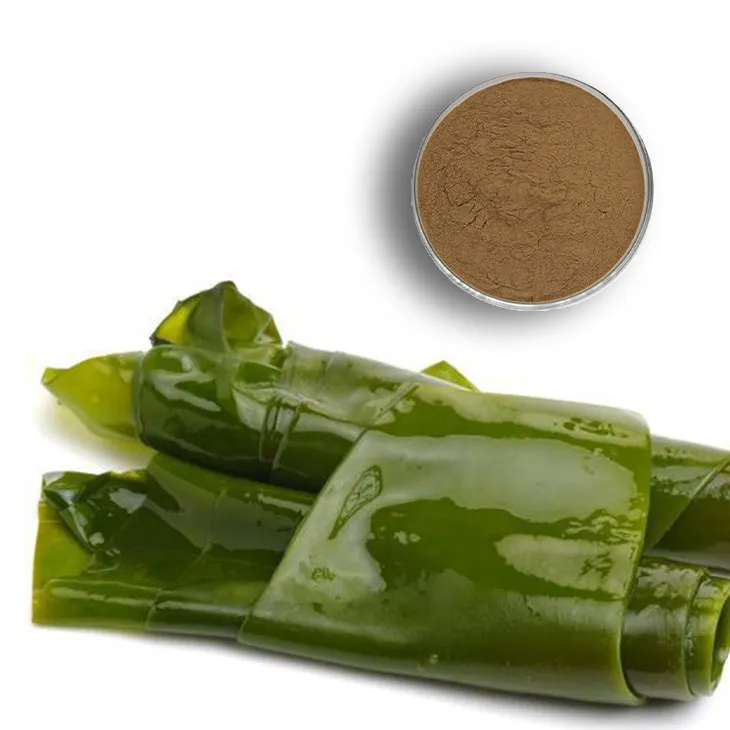- 0086-571-85302990
- sales@greenskybio.com
Is kelp extract powder beneficial for diabetes? Are these all safe and suitable for diabetic patients?
2024-11-12

1. Introduction
Diabetes is a complex metabolic disorder that affects millions of people worldwide. Management of diabetes often involves a combination of lifestyle changes, including diet modification. In recent years, there has been growing interest in the potential health benefits of various natural products, and Kelp Extract Powder is one such substance that has come under the spotlight. Kelp, a type of large brown seaweed, has been consumed in some cultures for its purported health - promoting properties. But the question remains: is Kelp Extract Powder beneficial for diabetes, and is it safe and suitable for diabetic patients? This article will explore these questions in detail.

2. Kelp Extract Powder and Insulin Sensitivity
2.1 The Role of Insulin Sensitivity in Diabetes
Insulin sensitivity is a crucial factor in diabetes management. In a healthy individual, cells are responsive to insulin, which allows glucose to be taken up from the bloodstream and used for energy or stored. In diabetes, especially type 2 diabetes, insulin resistance often develops, meaning cells do not respond effectively to insulin. This leads to elevated blood glucose levels.
2.2 Potential Effects of Kelp Extract Powder on Insulin Sensitivity
Some studies suggest that components in kelp extract powder may have a positive impact on insulin sensitivity. For example, kelp contains certain bioactive compounds such as fucoidan. Fucoidan has been shown in some in - vitro and animal studies to modulate cellular signaling pathways related to insulin action. It may enhance the ability of cells to respond to insulin, thereby potentially helping to lower blood glucose levels. However, it's important to note that human studies on this specific aspect of kelp extract powder and insulin sensitivity are still limited.

3. Nutritional Value of Kelp Extract Powder for Diabetics
3.1 Macronutrients in Kelp
Kelp extract powder is relatively low in calories, which is beneficial for diabetic patients who need to manage their energy intake. It also contains a small amount of protein. While the protein content may not be as high as in other food sources, it can still contribute to overall dietary protein intake.
3.2 Micronutrients and Their Importance for Diabetics
Kelp is rich in several important micronutrients. One of the key micronutrients is iodine. Iodine is essential for the proper functioning of the thyroid gland. The thyroid gland plays a role in regulating metabolism, and an imbalance in thyroid function can affect blood glucose levels. Adequate iodine intake through kelp can help maintain a healthy thyroid function, which may indirectly impact diabetes management.
Additionally, kelp contains other minerals such as potassium, magnesium, and calcium. Potassium is important for maintaining proper heart function and fluid balance. Magnesium is involved in numerous enzymatic reactions in the body, including those related to glucose metabolism. Calcium is crucial for bone health, which is also relevant for diabetic patients as they may be at higher risk of bone - related problems.
Kelp also contains vitamins, such as vitamin K. Vitamin K is involved in blood clotting and bone metabolism. Overall, the presence of these micronutrients in kelp extract powder can complement a diabetic diet.

4. Safety Profile of Kelp Extract Powder for Diabetics
4.1 General Safety Considerations
For the general diabetic population, kelp extract powder is generally considered safe when consumed in moderation. However, excessive intake of kelp can lead to high iodine levels, which may cause thyroid problems. This is especially a concern for patients with pre - existing thyroid disorders.
4.2 Safety in Different Diabetic Patient Subgroups
-
Type 1 Diabetes
In type 1 diabetes, where the body does not produce insulin, kelp extract powder may still offer some benefits in terms of its nutritional value. However, patients need to be cautious about iodine intake as it can interact with medications or affect thyroid function. It is important for type 1 diabetic patients to work with their healthcare providers to monitor iodine levels if they choose to consume kelp extract powder. -
Type 2 Diabetes
In type 2 diabetes, kelp extract powder's potential to improve insulin sensitivity could be beneficial. But again, the issue of iodine overdose needs to be considered. Also, patients with type 2 diabetes who have kidney problems may need to be more cautious as high potassium levels in kelp could potentially affect kidney function further. -
Diabetic Patients with Hypertension
For diabetic patients with hypertension, the sodium content in kelp may be a concern. Although kelp is not extremely high in sodium compared to some other foods, excessive consumption could potentially contribute to elevated blood pressure. These patients should be mindful of their overall sodium intake when considering kelp extract powder.
Long - term consumption of kelp extract powder has not been extensively studied in diabetic patients. There is a need for more research to determine if there are any cumulative effects on the body, especially in relation to the thyroid, kidneys, and other organs. Some potential long - term concerns could include the development of thyroid nodules or changes in kidney function over time due to continuous exposure to the components in kelp.

5. Incorporating Kelp Extract Powder into a Diabetic Diet
5.1 Recommended Dosage
There is no standardized recommended dosage of kelp extract powder for diabetic patients yet. However, a general guideline could be to start with a small amount, such as 1 - 2 grams per day, and gradually increase if well - tolerated. It is crucial to monitor for any signs of iodine overdose, such as changes in thyroid function or symptoms like goiter.
5.2 Food Combinations
Kelp extract powder can be combined with other diabetes - friendly foods. For example, it can be added to a salad along with low - glycemic vegetables like spinach and cucumber. This combination not only provides a variety of nutrients but also helps in controlling blood glucose levels. It can also be added to smoothies made with low - sugar fruits like berries and a source of protein such as Greek yogurt.
6. Conclusion
Kelp extract powder shows some potential benefits for diabetes in terms of its possible impact on insulin sensitivity and its rich nutritional profile. However, safety considerations, especially regarding iodine intake and its implications for different diabetic patient subgroups, cannot be overlooked. More research is needed to fully understand the long - term effects of kelp extract powder on diabetic patients. Until then, diabetic patients who are interested in incorporating kelp extract powder into their diet should do so under the guidance of a healthcare provider to ensure both safety and potential benefits.
FAQ:
Question 1: How does kelp extract powder affect insulin sensitivity in diabetic patients?
Some components in kelp extract powder may potentially improve insulin sensitivity. Kelp contains certain bioactive substances like polysaccharides. These substances might interact with cells in the body, particularly those involved in glucose metabolism. For example, they could enhance the ability of cells to respond to insulin, allowing for more efficient uptake of glucose from the bloodstream. However, more research is needed to fully understand the exact mechanisms and the extent of this effect.
Question 2: What nutritional value does kelp extract powder have for diabetic patients?
Kelp extract powder is rich in various nutrients. It contains vitamins such as vitamin K, which is important for blood clotting and bone health. It also has minerals like iodine, which is crucial for thyroid function. In terms of diabetes, the presence of dietary fiber in kelp can be beneficial. Fiber slows down the digestion process, leading to a more gradual release of glucose into the bloodstream, which helps in better blood sugar control.
Question 3: Are there any potential risks for diabetic patients when taking kelp extract powder?
While kelp extract powder has potential benefits, there are also some potential risks for diabetic patients. One concern is the iodine content. Excessive iodine intake can disrupt thyroid function, which in turn may have an impact on metabolism and potentially affect blood sugar levels. Also, some people may be allergic to components in kelp, which can cause allergic reactions. Additionally, if kelp extract powder is contaminated with heavy metals, it can pose health risks.
Question 4: Is kelp extract powder suitable for all types of diabetic patients?
Kelp extract powder may not be suitable for all types of diabetic patients. For example, patients with certain thyroid disorders in addition to diabetes need to be cautious. Since kelp is high in iodine, it could exacerbate thyroid problems in these individuals. Diabetic patients with kidney problems may also face challenges as the body's ability to process and excrete substances from kelp may be impaired. Each diabetic patient subgroup has different physiological characteristics, so the suitability of kelp extract powder needs to be evaluated on an individual basis.
Question 5: What are the long - term effects of taking kelp extract powder for diabetic patients?
The long - term effects of taking kelp extract powder for diabetic patients are not fully known. In theory, if it consistently improves insulin sensitivity and blood sugar control, it could potentially reduce the risk of diabetes - related complications such as cardiovascular diseases and nerve damage over time. However, potential long - term risks related to iodine intake or other substances in kelp also need to be considered. Long - term studies are required to comprehensively assess these effects.
Related literature
- The Role of Nutraceuticals in Diabetes Management: A Focus on Kelp Extracts"
- "Kelp and Diabetes: An Analysis of Potential Benefits and Risks"
- "Nutritional Components of Kelp and Their Implications for Diabetic Diets"
- ▶ Hesperidin
- ▶ Citrus Bioflavonoids
- ▶ Plant Extract
- ▶ lycopene
- ▶ Diosmin
- ▶ Grape seed extract
- ▶ Sea buckthorn Juice Powder
- ▶ Fruit Juice Powder
- ▶ Hops Extract
- ▶ Artichoke Extract
- ▶ Mushroom extract
- ▶ Astaxanthin
- ▶ Green Tea Extract
- ▶ Curcumin
- ▶ Horse Chestnut Extract
- ▶ Other Product
- ▶ Boswellia Serrata Extract
- ▶ Resveratrol
- ▶ Marigold Extract
- ▶ Grape Leaf Extract
- ▶ New Product
- ▶ Aminolevulinic acid
- ▶ Cranberry Extract
- ▶ Red Yeast Rice
- ▶ Red Wine Extract
-
Maca Extract
2024-11-12
-
Rosemary extract
2024-11-12
-
Lycopene
2024-11-12
-
Propolis Extract Powder
2024-11-12
-
Cassia Seed Extract
2024-11-12
-
Clove Powder
2024-11-12
-
Lily extract
2024-11-12
-
Citrus Aurantii Extract
2024-11-12
-
Curcuma Longa Extract
2024-11-12
-
Lavender Extract
2024-11-12





















